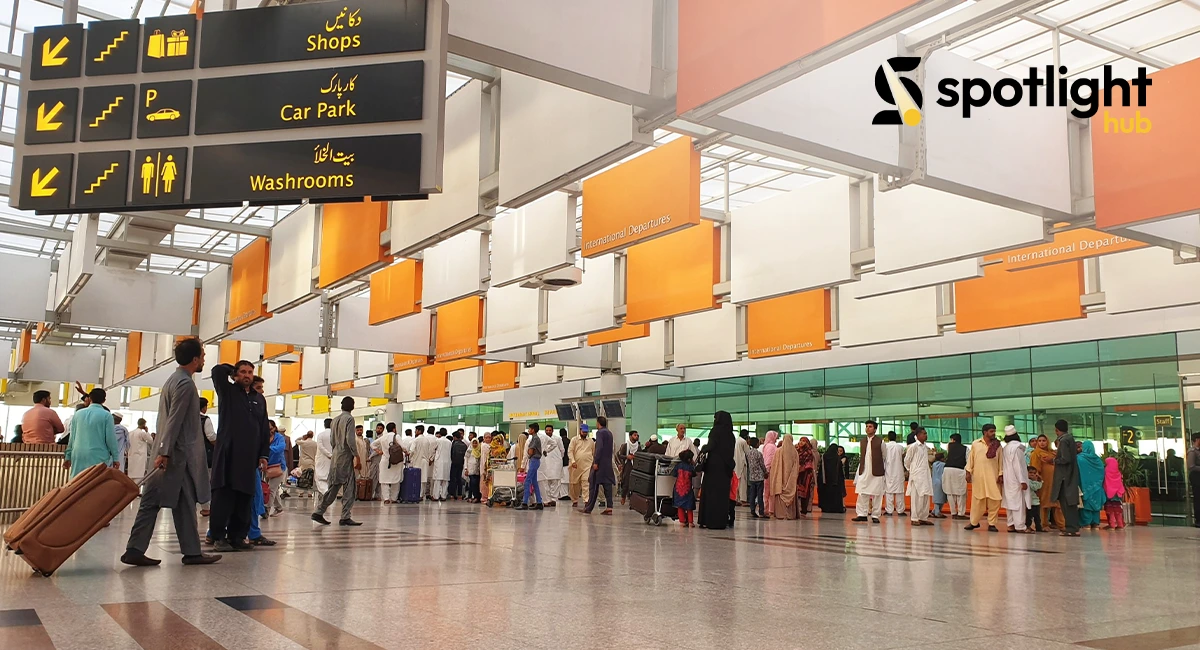A person’s homeland should be their best opportunity, not their last resort. But in 2024, over 727,000 Pakistanis left the country in search of better job opportunities abroad. This massive migration highlights deep economic challenges and the desire for a more stable future.
Gulf countries like Saudi Arabia, the UAE, and Qatar remain top destinations, offering higher wages and financial security. But why are so many, especially the youth, choosing to work overseas? And what does this growing migration mean for Pakistan’s future?
Why Are So Many Pakistanis Migrating?
There are a few key reasons why so many Pakistanis are seeking work abroad. These are some of the biggest factors:
Job Opportunities: Pakistan’s domestic job market often fails to meet the needs of its growing population. Many skilled workers, professionals, and laborers seek better opportunities abroad in sectors like construction, healthcare, and IT.
Higher Salaries: The promise of significantly higher wages, especially in countries like Saudi Arabia and the UAE, is one of the main draws. The ability to send remittances back home makes it an appealing option for many workers.
Improved Living Conditions: Along with better wages, migrants often enjoy better healthcare, education, and social services in foreign countries. This makes migration an attractive option for individuals seeking a better life.
Political and Social Stability: In search of more stable political environments and better security, many Pakistanis decide to leave due to ongoing political instability at home.
The Impact of Migration on Pakistan’s Economy
Migration brings mixed effects on Pakistan’s economy. While remittances significantly boost the economy, the loss of skilled workers, known as the “brain drain,” presents challenges for long-term growth. This dual impact highlights the need for better job opportunities within the country to retain talent.
- Increased Remittances: Pakistan receives billions in remittances yearly, supporting families, boosting the economy, and strengthening foreign reserves.
- Brain Drain: The migration of skilled professionals, including doctors, engineers, and IT experts, results in a brain drain for Pakistan. This talent loss weakens key sectors and hampers long-term economic growth.
- Dependence on Remittances: With so many workers abroad, Pakistan’s economy has become more reliant on remittances. If demand for Pakistani workers abroad decreases, the country could face economic challenges.
Where Are Pakistanis Migrating?
The migration trend isn’t limited to just one region. While Gulf countries remain top destinations, Pakistanis are increasingly exploring other parts of the world:
- Gulf Countries: Countries like Saudi Arabia, the UAE, and Qatar continue to be the main destinations, offering jobs in sectors like construction, hospitality, and healthcare.
- Western Countries: The UK, the US, and Canada are also seeing an increase in Pakistani migrants, especially those with higher skills in fields like IT, healthcare, and education.
- Other Asian Countries: Countries such as Malaysia, Singapore, and South Korea are emerging as popular destinations for Pakistanis seeking opportunities in manufacturing and technology.
What Does This Mean for Migrants and Their Families?
For many migrants, leaving Pakistan is about securing a better future for themselves and their families. The financial support they send back helps improve the living standards of their loved ones, covering essential expenses like education and healthcare.
However, being away from family comes with its emotional toll. Migrants often experience homesickness and face challenges adjusting to life in a new country. Despite these difficulties, the opportunity for better wages and a higher quality of life makes migration a worthwhile choice for many.
What Does the Future Hold?
The trend of migration is likely to continue, especially with increasing demand for labor in Gulf countries and beyond. However, Pakistan must look to reduce its reliance on migration by creating more opportunities at home. By investing in key sectors like IT, agriculture, and infrastructure, Pakistan can begin to retain its talent and provide jobs for its growing population.
Final Thoughts
The migration of so many young Pakistanis is a reflection of a larger issue: the lack of opportunities at home. With high unemployment, political instability, and economic challenges, many young people feel their futures lie abroad.
But if Pakistan continues to lose its best talent to other countries, it risks undermining its future potential. It’s a critical moment for the country to invest in its youth and create opportunities that will keep them here, building a stronger, more prosperous Pakistan.










